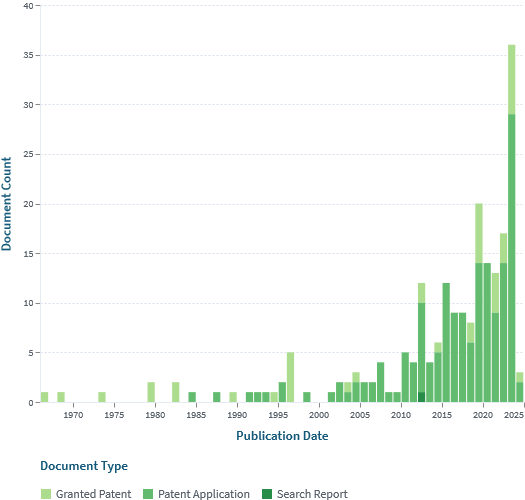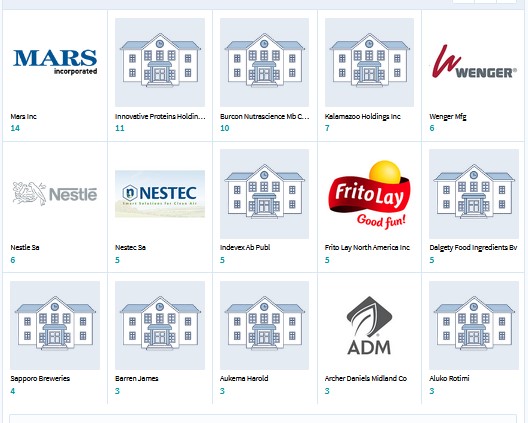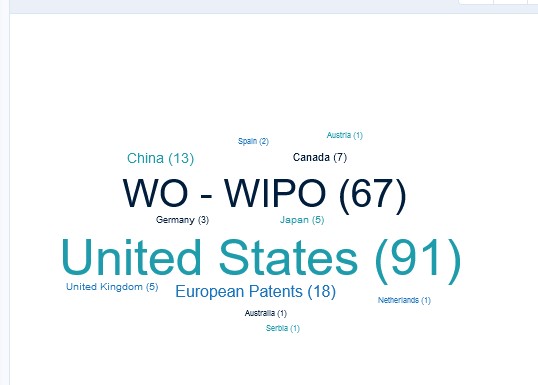Patent Analysis on Yellow Peas
Since I ate a ZENB NOODLE made from yellow peas the other day, I became interested in yellow peas in the food tech field, and I did some research on companies that are paying attention to yellow peas, which are still not very familiar in Japan, and on patents related to yellow peas. We have done a bit of research on the status of patents related to yellow peas.
The following details on yellow peas are based on the website of Link Food Co.
1. what is yellow pea?
They are an annual herb in the pea family of the legume family, grown mainly in Europe and North America, and have been used for food and feed since ancient times. Yellow peas are high in protein and contain a good balance of essential amino acids. They are also rich in dietary fiber (containing about three times as much as carrots), B vitamins, and minerals, and are said to be highly nutritious.
In addition, they are less likely to cause allergic reactions because they contain fewer isoflavones and lectins than soybeans and other ingredients.
Furthermore, yellow peas can be grown with a small amount of water and require less water than typical crops such as soybeans and corn, making them a crop that can effectively utilize water resources important to the environment.
Legumes, including yellow peas, can use nitrogen from the air as a nutrient for the soil, so they do not require nitrogen-based fertilizers during cultivation, which is said to lead to environmental pollution. The amount of carbon dioxide (CO2) emitted during the production of peas, including yellow peas, is low, and is only 1.5% that of beef.
In addition, yellow peas are grown in gardens, balconies, and potted plants, and are also enjoyed as ornamental flowers. The language of flowers includes “inviting laughter” and “a sign of hope,” making them suitable as gifts.
2. status of patent applications related to yellow peas
In a rough patent search on lenses.org, we extracted patents that contained the keywords “yellow pea” in the title, abstract, and claims of the invention, and found a total of 250 patents, indicating that the number of patent applications has increased dramatically in recent years.

Mars. Inc, Innovative Proteins Holding Llc, Burcon Nutrascience Mb Corp, Kalamazoo Holdings Inc, Wenger Mfg, and Nestle Sa (Nestle) are Top 5 companies as applicants. The top companies are almost from the U.S. and Canada.

In terms of the regions where applications have been filed, the U.S. appears to be the overwhelming majority at this time.

Some of the patents raised in this issue are as follows.
First, one recently published and patented in the US was on pulse protein, a Canadian company, Burcon Nutrascience’s U.S. rights.
Preparation of pulse protein products(YP810)
In summary, the article relates to a pea protein product that has very few or virtually no pea/vegetable flavor notes characteristic of conventional commercial pea protein products, is useful for fortification of food and beverage products, and is prepared without the use of salt in food products.
Next, an interesting one, although a patent from a little while ago, is from Just, Inc. patent on egg substitutes. .
Eggless mayonnaise comprising plant-based egg substitute
The claims are very simple, and the content of claim 1 translates to,
An eggless mayonnaise composition, said composition comprising:
(i) yellow pea flour; and
(ii) a modified starch;
wherein said yellow pea flour and said modified starch are in a weight ratio ranging from 6:4 to 4:6, and wherein said yellow pea flour has been pre-hydrated by incubating the flour with water for at least 24 hours.
The mayonnaise is made with yellow peas instead of eggs as the composition of the mayonnaise.
Nestlé has also filed a patent application for a “Plant based meat analogue prepared by wet extrusion of a mixture of plant protein isolates and gluten,” although the rights have not yet been granted.
In claim 6, yellow peas are given as a plant protein.
Yellow peas are still not well known in Japan, but if you look around the world, you will see that their usefulness has been noticed and that they are receiving a lot of technical attention.
3. reference site:
Reduce environmental impact with yellow peas! Featured Vegetable Material
